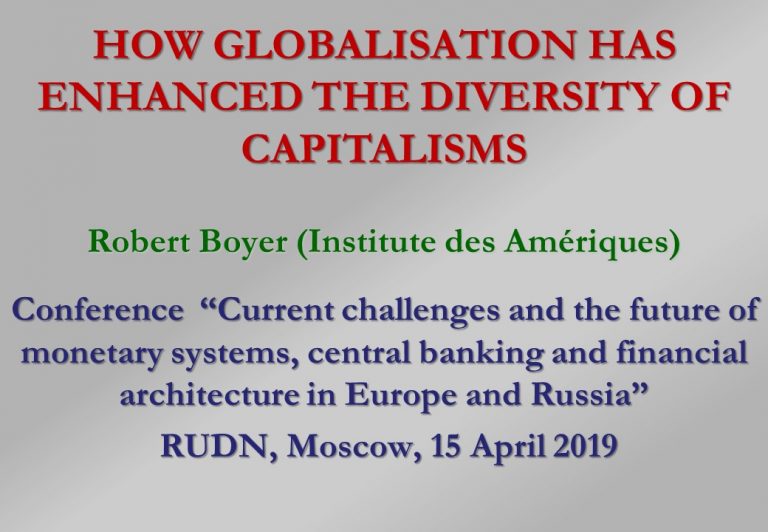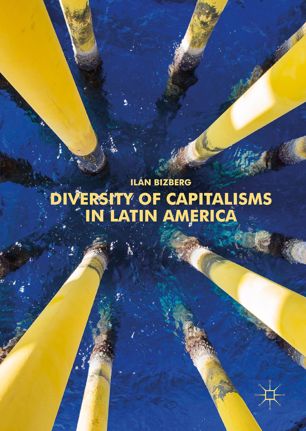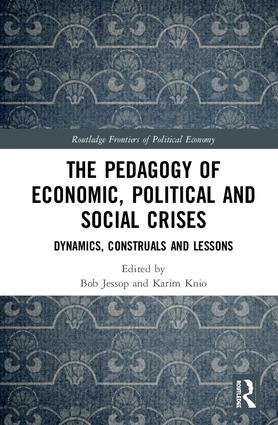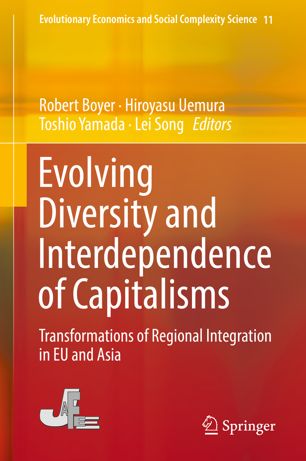Presentation Powerpoint, prepared for the Conference “Current challenges and the future of monetary systems, central banking and financial architecture in Europe and Russia”
RUDN, Moscow, 15 April 2019
Presentation Powerpoint prepared for EACES Workshop « The Rise of State Capitalism: consequences for economic and political development”, Moscow, April 10 and 11, 2019
2019_Boyer_-Prologue_DiversityOfCapitalismsInLatinA.pdf
The pedagogy of economic, political and social crises: Dynamics, construals and lessons, Bob Jessop and Karim Knio (Eds), Routledge: Frontiers of Political Economy, London, New-York, juin 2018, Chapitre 8, p.139-165.
in Boyer Robert, Toshio Yamada, and Lei Song (Eds), Evolving Diversity and Interdependence of Capitalisms. Transformations of Regional Integration in EU and Asia, book series (EESCS, volume 11), Springer, Japan KK, part of Springer Nature 2018, p. 259-302
in Boyer Robert, Toshio Yamada, and Lei Song (Eds), Evolving Diversity and Interdependence of Capitalisms. Transformations of Regional Integration in EU and Asia, book series (EESCS, volume 11), Springer, Japan KK, part of Springer Nature 2018, p. 17-64
in Des sciences sociales à LA science sociale. Fondements anti-utilitaristes, Sous la direction de Alain Caillé, Philippe Chanial, Stéphane Dufoix et Frédéric Vandenberghe, 2018, Editions le bord de l’eau, Chap. III, p. 65-81
Au moment où la querelle fait rage entre les sociologues en France, comme il y a un an entre les économistes, il est urgent de rappeler que le mot « sociologie » a longtemps servi à désigner la science sociale en général (économie et philosophie politiques incluses, aussi bien que l’anthropologie, l’histoire ou la géographie) et qu’elle est une chose trop importante pour la confier aux seuls sociologues. Elle est l’affaire de tous les social scientists. À côté des sciences sociales spécialisées, c’est une science sociale généraliste, seule à même de penser le monde dans toute sa complexité, qu’il nous faut maintenant faire advenir et instituer. Une science sociale qu’il est urgent, également, de fonder une bonne fois sur des bases non-utilitaristes et dans une ouverture résolue à toutes les sociologies et à toutes les sciences sociales du monde entier, et pas seulement à celles qui viennent de l’occident. Replacées dans ce cadre plus général, la plupart des querelles de chapelles se résolvent d’elles-mêmes. Pour le plus grand bien d’un désir partagé de connaître. Qu’un tel objectif soit accessible, c‘est ce dont témoignent la variété et la qualité des auteurs ici réunis, anthropologues, économistes, géographes, historiens, philosophes ou sociologues.
In : La dette souveraine: Etat et économie politique, sous la direction de Julia Christ et Gildas Salmon, Collection « Raisons pratiques », Éditions de l’EHESS, Paris, Mars 2018, p. 9-47.
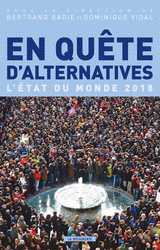 In En quête d’alternatives. L’état du monde 2018, (sous la direction de Bertrand Badie et Dominique Vidal), La Découverte, Septembre 2017, p.224-230.
In En quête d’alternatives. L’état du monde 2018, (sous la direction de Bertrand Badie et Dominique Vidal), La Découverte, Septembre 2017, p.224-230.
